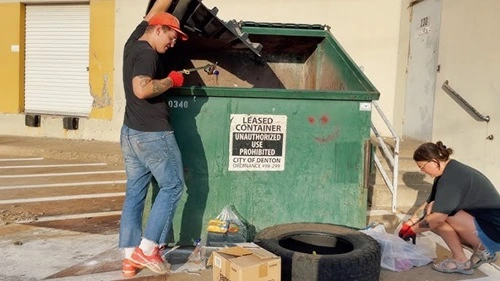Yes, in most states, it is illegal to own a squirrel as a pet due to wildlife protection laws, public safety concerns, and the animal’s natural behavior. While a few states allow ownership under strict regulations, the majority prohibit keeping squirrels as pets without proper permits. Owning a squirrel without following legal guidelines can lead to fines, confiscation of the animal, and other penalties.
Legal Framework for Owning Squirrels
Squirrels are classified as wildlife in the United States, and their ownership is governed by federal, state, and local laws. These laws aim to protect native species, preserve ecological balance, and ensure public safety.
1. Federal and State Wildlife Laws
Federal Laws
The U.S. Fish and Wildlife Service (USFWS) and Lacey Act regulate the trade and possession of wildlife, including squirrels. These federal laws prohibit the capture, sale, or possession of certain species without permits, especially if the animal was obtained illegally or crosses state lines.
- For example, owning or transporting federally protected species, such as the endangered Carolina Northern Flying Squirrel, is strictly prohibited.
State Laws
Most states classify squirrels as wild animals, making their ownership illegal or requiring a special wildlife rehabilitation or exotic pet permit.
- California: It is illegal to own a squirrel as a pet under the state’s strict wildlife laws.
- Texas: Owning a squirrel is legal but requires a permit for certain species.
- Florida: The Florida Fish and Wildlife Conservation Commission (FWC) allows squirrel ownership only if the animal is bred in captivity and the owner has the appropriate Class III wildlife permit.
2. Reasons for Restrictions
1. Public Safety Concerns
Squirrels are not domesticated animals and may exhibit aggressive behavior, especially during mating or territorial disputes. Their strong teeth can cause severe bites, and they may carry diseases such as rabies or leptospirosis.
2. Environmental Impact
Owning squirrels disrupts local ecosystems by removing them from their natural habitat. Introducing a squirrel into a non-native environment can also result in ecological harm.
3. Animal Welfare
Squirrels are highly active and require a large natural habitat. Confinement in a domestic setting can lead to stress, malnutrition, and health problems.
3. Exceptions to Squirrel Ownership Restrictions
Some states and situations allow exceptions for squirrel ownership:
1. Wildlife Rehabilitation Permits: Licensed wildlife rehabilitators are permitted to care for injured or orphaned squirrels temporarily.
2. Captive-Bred Squirrels: In states like Florida, squirrels bred in captivity may be owned with the appropriate permits.
3. Educational or Scientific Use: Zoos, research institutions, or educational programs may obtain permits to keep squirrels for specific purposes.
4. Penalties for Illegal Squirrel Ownership
Violating wildlife laws can result in significant legal consequences:
1. Fines: Fines for illegal ownership vary by state but can range from $100 to $5,000.
2. Animal Confiscation: Authorities may confiscate illegally owned squirrels and transfer them to wildlife rehabilitation centers or sanctuaries.
3. Criminal Charges: In severe cases, offenders may face misdemeanor or felony charges, leading to potential jail time.
5. How to Handle Squirrels Humanely
If you find an injured or orphaned squirrel, it is essential to follow proper protocols:
1. Contact Wildlife Authorities: Notify your state wildlife agency or a licensed wildlife rehabilitator.
2. Avoid Handling: Squirrels can bite or carry diseases, so avoid direct contact.
3. Provide Temporary Shelter: If directed by authorities, you can place the squirrel in a safe, ventilated box until professionals arrive.
Recent Legal Updates (2023-2024)
1. Stricter Permitting Requirements
States like Georgia and Virginia have implemented stricter requirements for obtaining wildlife permits, making it more difficult for individuals to legally own squirrels.
2. Expanded Wildlife Rehabilitation Programs
Several states have increased funding for wildlife rehabilitation centers to address the rising number of orphaned or injured squirrels found in urban areas.
3. Increased Enforcement Against Illegal Ownership
Wildlife agencies have ramped up enforcement efforts against illegal wildlife ownership, including public education campaigns to discourage keeping wild animals as pets.
FAQs About Owning a Squirrel
Q1. Is it illegal to own a squirrel everywhere in the U.S.?
Ans: No, laws vary by state. Some states allow squirrel ownership with permits, while others, such as California and New York, prohibit it entirely.
Q2. Can I own a squirrel if it was bred in captivity?
Ans: In some states, such as Florida, owning captive-bred squirrels is allowed with the proper permits.
Q3. What should I do if I find an injured squirrel?
Ans: Contact your local wildlife agency or a licensed rehabilitator. Do not attempt to keep or care for the squirrel without proper authorization.
Q4. Are there penalties for owning a squirrel illegally?
Ans: Yes, penalties can include fines, animal confiscation, and potential criminal charges.
Q5. Why are squirrels not considered suitable pets?
Ans: Squirrels are wild animals that require large natural habitats, exhibit unpredictable behavior, and may carry diseases, making them unsuitable for domestic settings.


